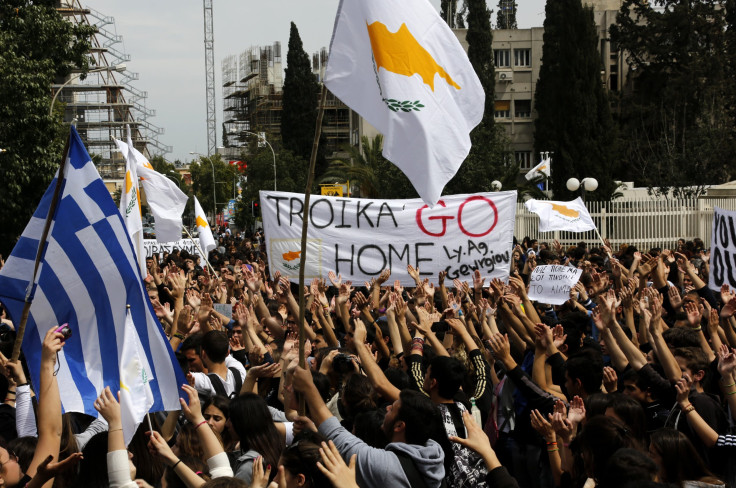Cyprus Financial Crisis: Public Anger Rising, But So Is Solidarity

The banks in Cyprus remained closed on Tuesday amid government fears of mass withdrawals.
The country’s second largest bank has been shut down, invalidating thousands of account holders’ checks and debit cards. ATM withdrawals have been limited to €100 ($130).
While Cyprus’ banking system may have been saved from collapse due to a €10 billion loan from the “troika” -- the European Central Bank, European Commission and the International Monetary Fund -- and one-time tax on larger bank deposits, most Cypriots are uncertain about their country’s economic future.
“People are feeling betrayed by the EU,” Sarah Malian, an employee at the Cyprus Community Media Centre in Nicosia, said. “And there has been no communication (from the Cypriot government) about what people should do.”
The dissolution of Cyprus Popular Bank, more commonly known as Laiki Bank, has caused particular unease.
The bank’s assets are being shuffled around to other financial institutions while its customers have been left wondering what’s happening with their money, and many businesses are unsure if they will be able to make payroll next month.
Laiki representatives are out of reach of the public as the government has extended the bank holiday -- the longest on record at more than a week so far -- until Thursday.
Perhaps more disconcerting to Cypriots than the freezing up of the country’s banking sector is what's expected to follow when it thaws.
The island nation’s economy, which had been dependent on the vast amount of foreign capital held in Cypriot banks, is expected to take another hit from an anticipated exodus of foreign depositors, the vast majority of whom are Russian.
Russian deposits accounted for about one-third of the total, amounting to an estimated $32 billion. (That's larger than Cyrpus' annual GDP).
“Everyone is worried about what will happen to all of that Russian investment,” Malian said.
While many Cypriots are concerned about the economy and angry at their own government, she said people in the capital have been trying to support local businesses and prepare for a recession.
“Everybody knows somebody whose business is going to be affected,” Malian said. “There is a sense of collective solidarity.”
© Copyright IBTimes 2024. All rights reserved.





















